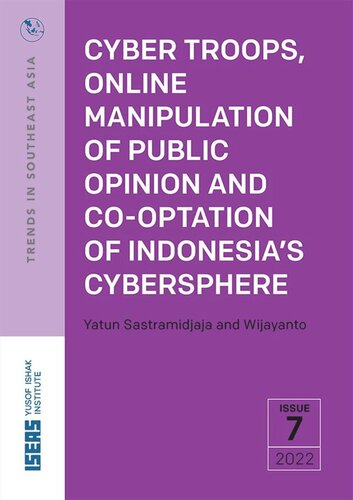

Most ebook files are in PDF format, so you can easily read them using various software such as Foxit Reader or directly on the Google Chrome browser.
Some ebook files are released by publishers in other formats such as .awz, .mobi, .epub, .fb2, etc. You may need to install specific software to read these formats on mobile/PC, such as Calibre.
Please read the tutorial at this link: https://ebookbell.com/faq
We offer FREE conversion to the popular formats you request; however, this may take some time. Therefore, right after payment, please email us, and we will try to provide the service as quickly as possible.
For some exceptional file formats or broken links (if any), please refrain from opening any disputes. Instead, email us first, and we will try to assist within a maximum of 6 hours.
EbookBell Team

0.0
0 reviewsOrganized propaganda and public opinion manipulation are increasing in Indonesia’s cybersphere. Specifically, since 2019, there has been a marked rise of cyber troop campaigns that serve to mobilize public consensus for controversial government policies. Cyber troop operations played a crucial role in three controversial events in which public opinion had been initially critical of the government policy at issue. These were, first, the revision of the Law on the Corruption Eradication Commission in September 2019; second, the launch of the New Normal policy during the COVID-19 pandemic in May 2020; and third, the passing of the Omnibus Law for Job Creation in October 2020. In all three cases, there is clear evidence of cyber troops manipulating public opinion in support of government policy. In all three cases, the cyber troops manufactured consent by flooding social media with narratives that promoted the governing elite’s agenda, often using deceptive messages and disinformation that were amplified by numerous “buzzer” and “bot” accounts. Thereby they effectively drowned out oppositional discourses on social media and neutralized dissent, especially as mainstream media simultaneously echoed the cyber troops’ narratives. The ever more systematic use of cyber troops—and the considerable resources spent on such operations—indicates increasing co-optation of Indonesia’s cybersphere for elite interests. This threatens to undermine the quality of public debate and democracy in Indonesia because cyber troop operations not only feed public opinion with disinformation but also prevent citizens from scrutinizing and evaluating the governing elite’s behaviour and policy-making processes, which further exacerbates Indonesia’s ongoing democratic regression.